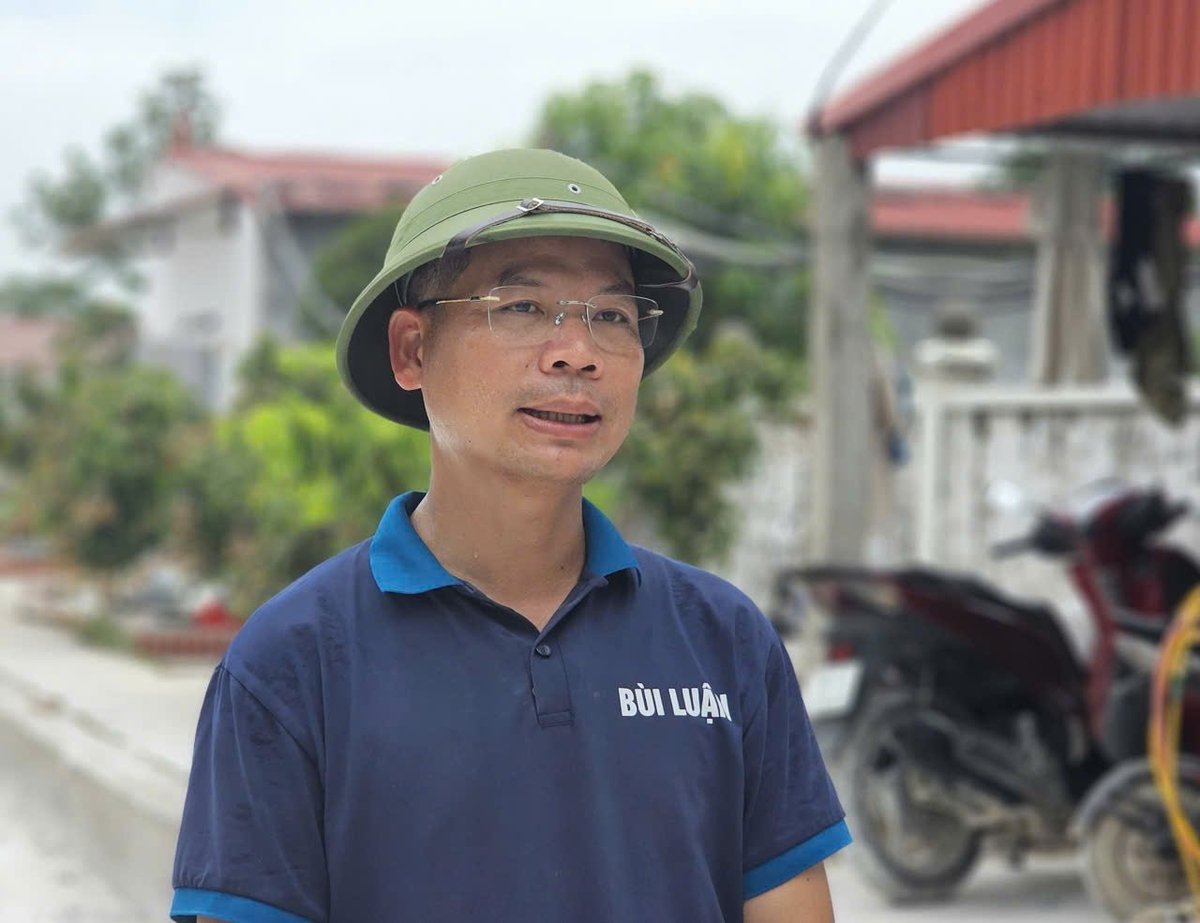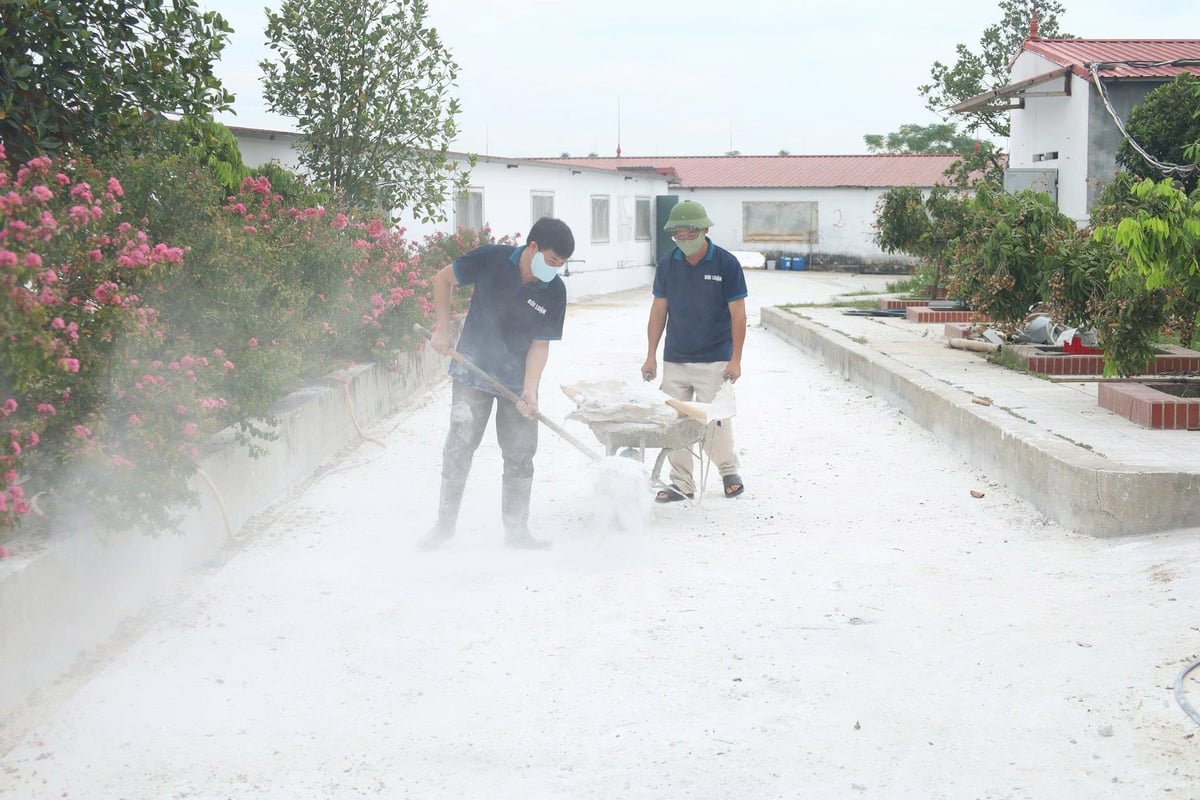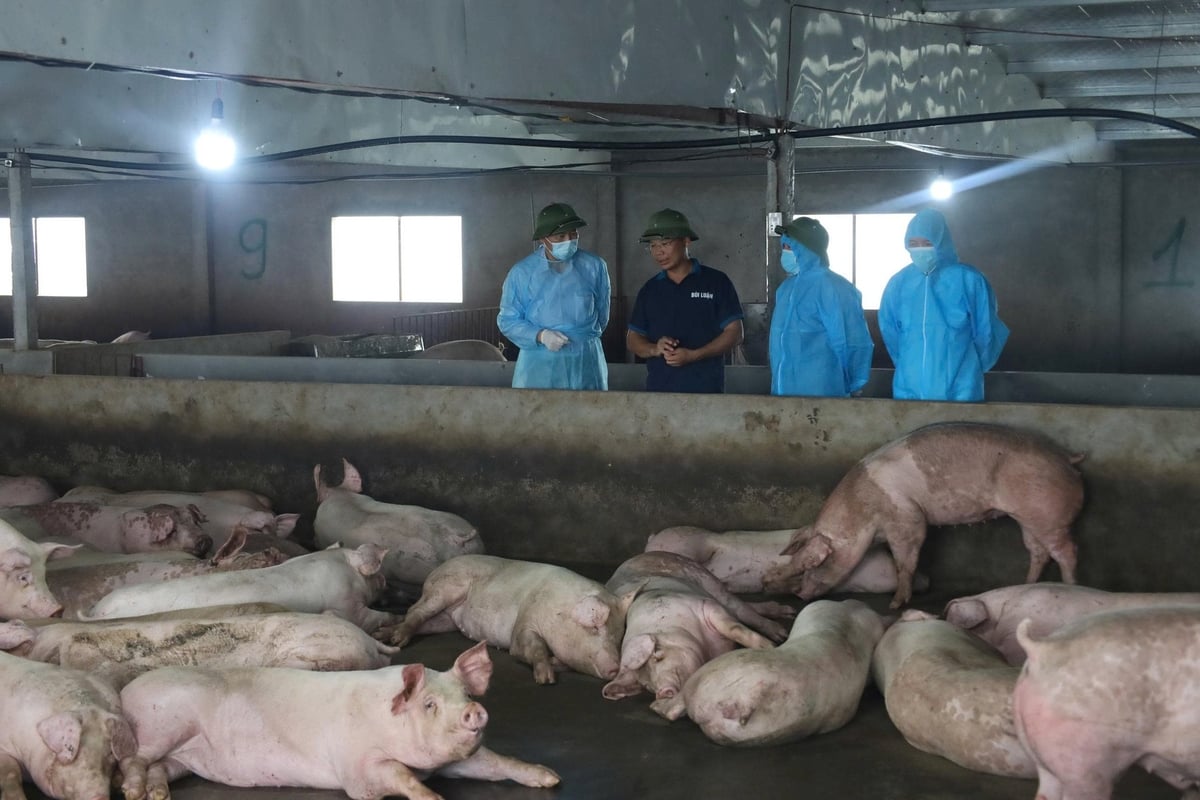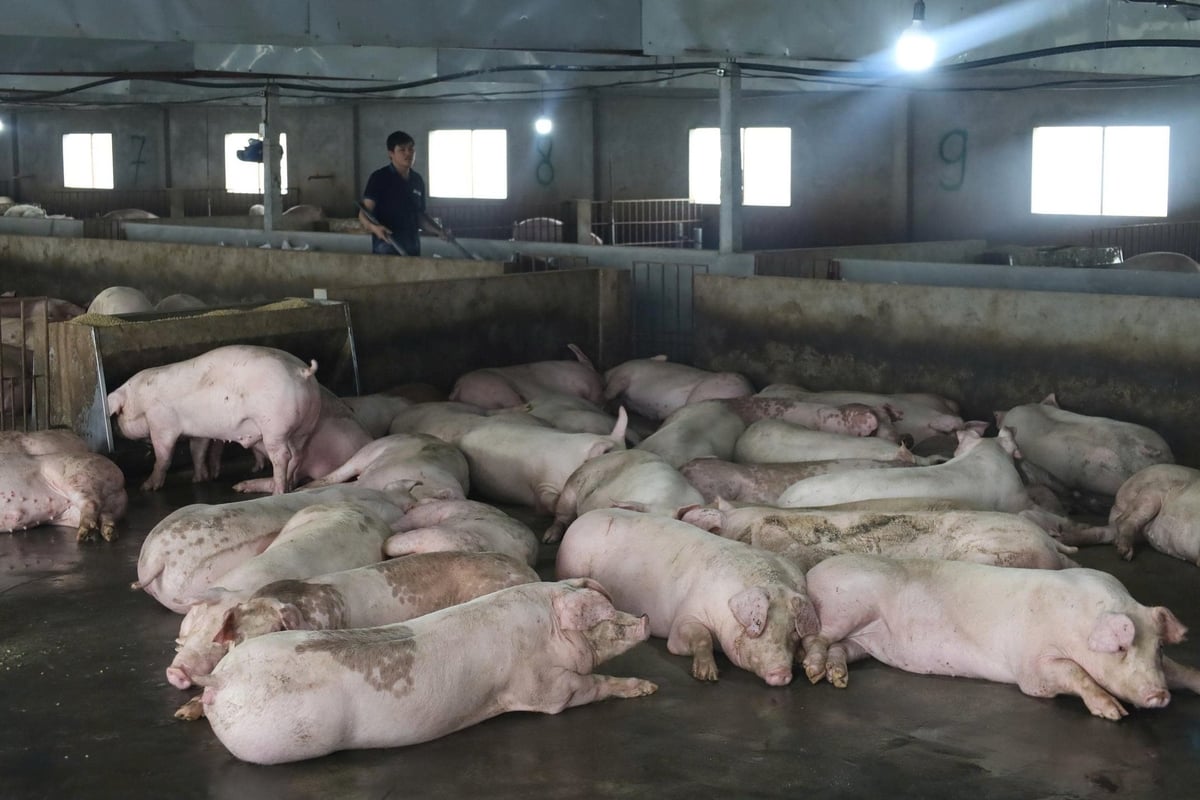December 7, 2025 | 16:23 GMT +7
December 7, 2025 | 16:23 GMT +7
Hotline: 0913.378.918
December 7, 2025 | 16:23 GMT +7
Hotline: 0913.378.918
Covering an area of nearly 7 ha, the pig farm of Bui Duc Bien's family (born in 1979) has long been regarded as the largest farm in Phu Tho province. It is located in Son Vi commune of the old Lam Thao district, now the Craft Village area of Phung Nguyen commune. The farm currently raises 2,400 pigs, including sows, pigs for meat, and piglets.
“During this period, the surrounding areas are surrounded by African swine fever on all fronts. Seeing people carrying pigs to destroy them, I feel like I’m sitting on fire, not knowing how much longer we can hold out,” said Bien.

Bui Duc Bien, owner of Bui Luan farm. Photo: Bao Khang.
His family started the farm model in 1998, initiated by Bui Duc Luan, Bien’s father and one of the outstanding farmers of Phu Tho province. After decades of "eating and sleeping with pigs", both Luan and Bien understood better than anyone how devastating the African swine fever is to livestock production, particularly small-scale farming models.
The year 2017 was a typical example. When the family’s farm expanded to more than 5,000 pigs per year, African swine fever broke out. The outbreak that year caused Luan to lose more than VND 10 billion, but from then on, he began to change his mindset, shifting his focus toward farm biosecurity.

Disinfection work at Bui Luan farm. Photo: Bao Khang.
Taking over the farm from his father, every year Bui Duc Bien maintained a stable pig barn system on a scale of more than 2,000 pigs per year. In addition to the pig barn area, his family also expanded 4 ha of industrial fish farming and grapefruit growing areas following the circular economic model. In 2022, when pork prices increased, the farm achieved a record revenue of more than VND 30 billion, creating jobs for over 20 local workers.
Thanks to the application of bio-safe farming solutions, up to this point, the farm is still standing firm against the storm of African swine fever in Phu Tho. However, Bien assesses that this outbreak is much more severe than in 2018.
“Firstly, the African swine fever virus strain this time shows very complicated developments, while the vaccine has not been able to guarantee full protection. Secondly, the outbreak occurred right at the time when the two-level government was in operation, the system of veterinary staff at the grassroots level had not been strengthened, so farmers lacked support,” he said.

Deputy Minister Phung Duc Tien visits the bio-safe livestock farming model at Bui Luan farm. Photo: Bao Khang.
Small-scale livestock farming occupies over 50% of Phu Tho province, making it difficult to apply prevention and control solutions. “The government recommends vaccination as the top solution, but to be honest, livestock farmers are still not confident. The price is one thing, but the main problem is that the vaccine is not very stable against all strains of infectious viruses, and in some places, the injections have even killed pigs, so people are worried. I think biosecurity is still the top solution for farm and ranch livestock farming today,” Bien said.
Currently, Bien's family farm is using a three-layer biosecurity farming method. The first layer is to completely prevent the spread of viruses from the outside by controlling what comes in and out of the farm. Using lime and disinfectants is the second layer to treat the environment inside. As for the third layer, the farm uses biological products to both increase the pigs' resistance and protect the environment in the pens.
“Since the beginning of the epidemic, some of our pigs have died, but when we brought blood samples and specimens to the Central Veterinary Diagnosis Center for testing, they were negative for African swine fever. Even at the peak of the epidemic, the pigs on the farm were healthy, so I think biosecurity is still the best solution during this period,” he said.

Farm biosecurity takes the lead as a prominent solution for livestock farming in Phu Tho province. Photo: Bao Khang.
According to Bui Duy Linh, Deputy Director of Phu Tho Department of Agriculture and Environment, one of the ways to respond to African swine fever in the province is to continue providing farmers with guidance on how to strictly apply biosecurity measures, especially focusing on daily cleaning through the appropriate usage of disinfectants and lime powder.
After merging the three provinces of Phu Tho, Vinh Phuc and Hoa Binh, the new Phu Tho province has a total pig herd of nearly 2 million pigs and 134,000 pig-raising households. However, the characteristics of Phu Tho province's livestock farming are mainly small-scale household farming in residential areas.
Along with vaccination, taking example from practical models such as Bui Luan farm, it can be said that farm biosecurity is the prime solution for Phu Tho's livestock industry to both respond to dangerous diseases like African swine fever and develop sustainably.
Translated by Samuel Pham

(VAN) After three years, Project FST/2020/123 collected approximately 3,000 insect specimens, classified them into about 50 morphological groups, and identified around 40 species, including several new species.
/2025/12/01/0509-2-175427_206.jpg)
(VAN) Emission-reducing coffee areas in Lam Dong have entered the new crop with stable yields, improved quality, and a remarkably enhanced cultivation environment.

(VAN) The Institute of Agricultural Sciences for Southern Vietnam (IAS) marked its 100th anniversary in Ho Chi Minh City, celebrating a century of growth as a leading institute contributing significantly to Viet Nam’s agricultural development.

(VAN) An increasing number of livestock farms are using biogas generators to create a source of renewable electricity, helping to save costs and mitigate environmental pollution.

(VAN) Small changes in rice cultivation, from irrigation methods and straw collection to input management, are paving a new way for Vietnam's agriculture in the journey toward emission reduction.

(VAN) With the project of converting biogas into renewable electricity, Australia is both helping pig farms reduce their energy costs by up to 25% and contributing to environmental protection.
![Hue aims for Net Zero: [1] Initial steps from green transportation](https://t.ex-cdn.com/nongnghiepmoitruong.vn/608w/files/huytd/2025/11/28/0853-anh-6-giao-thong-xanh-hue-094717_940-153724.jpg)
(VAN) For sustainable development, Hue City is implementing many solutions to promote green transportation, which is an important initial step on the journey to building a Net Zero Hue.